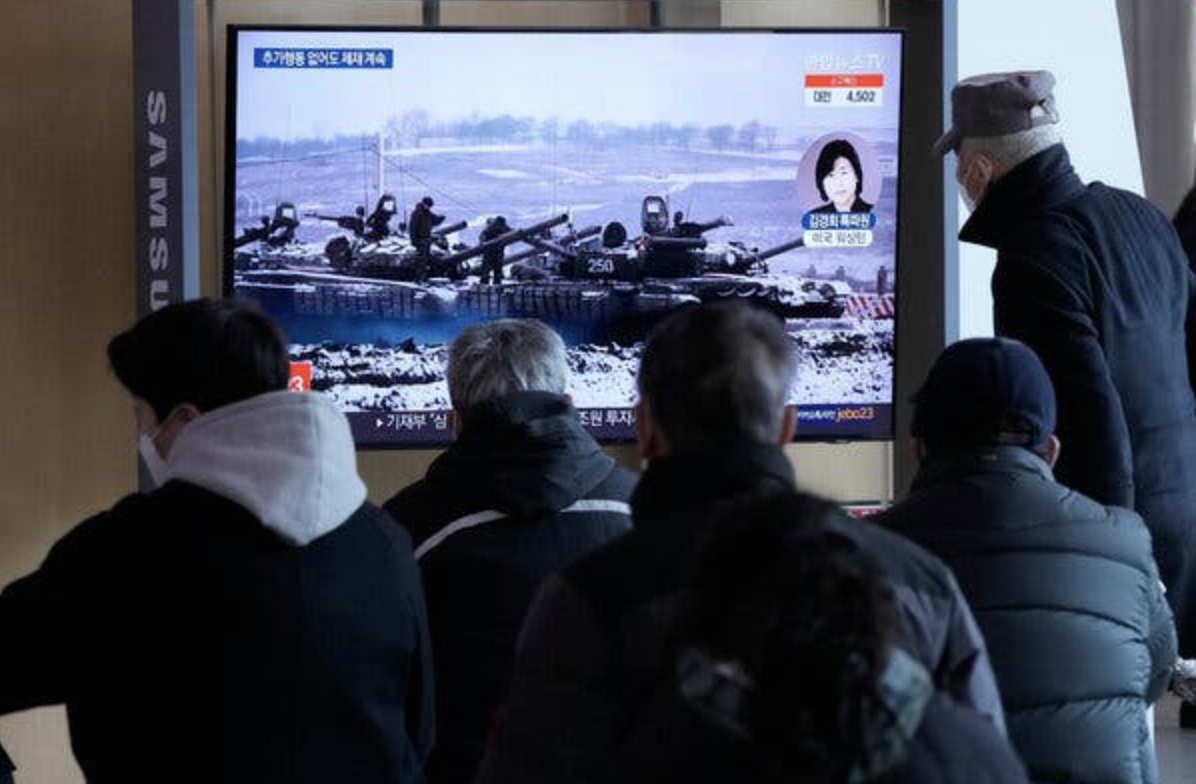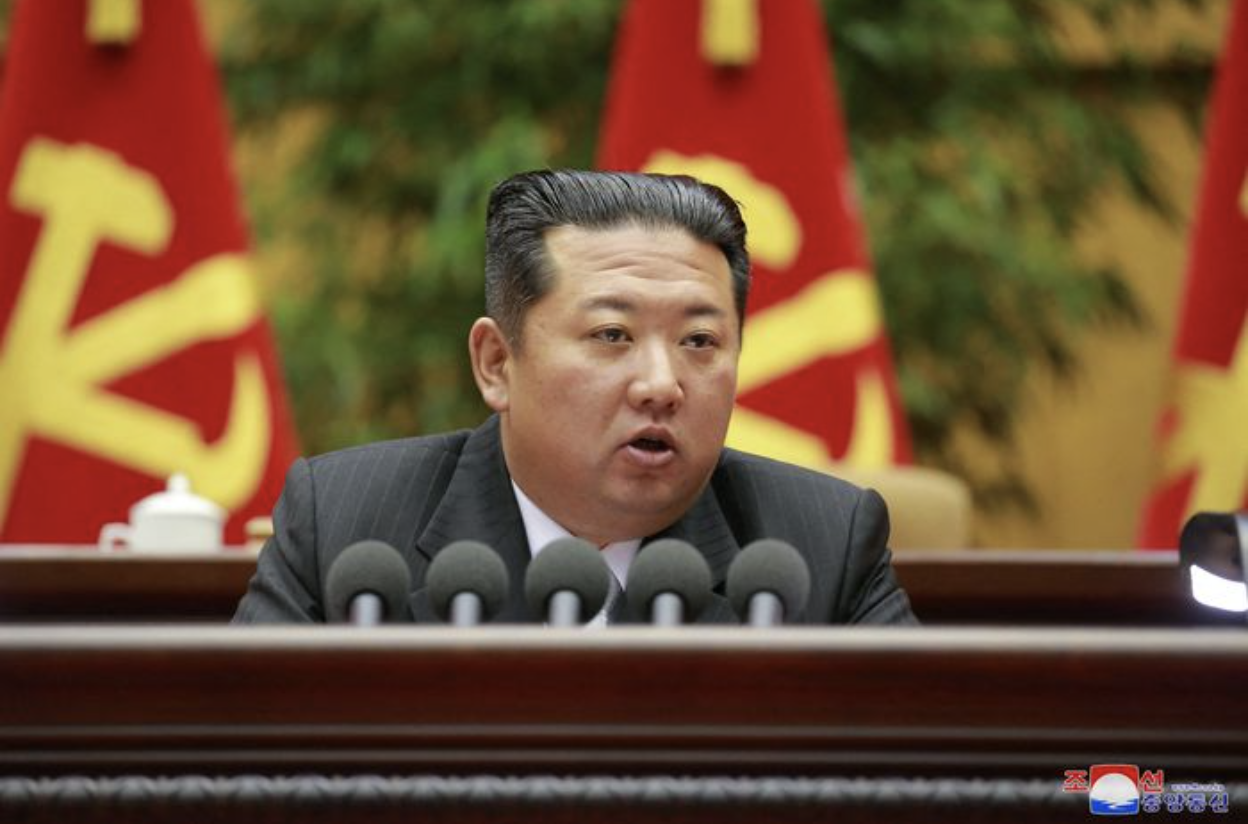What the Ukraine Crisis Means for North Korea
South Koreans watch coverage of the invasion of Ukraine in Seoul. Photo: Ahn Young-Joon / Associated Press
North Korea has resumed missile testing since its record-breaking sequence of launches in January. Pyongyang had halted testing during the Beijing Olympics, likely so as not to detract from its ally, China. Japanese and South Korean officials suspect the missile was fired around 7:52 local time from the Sunan area off of North Korea’s eastern shore.
This latest test comes at a time rife with political contestation and geopolitical struggle. South Korea is set for a presidential election on March 9, and the Russian invasion of Ukraine has prompted concerns that North Korea may use the crisis as an opportunity to continue testing without repercussions.
South Koreans see the US response to the Russian incursion into Ukraine as a test of its reliability as a military ally. Support among the population for developing nuclear weapons has increased as North Korea tests ballistic missiles and China has become more aggressive in the region. North Korea’s restarting of their nuclear tests signals that these fears are not unfounded.
The South Korea National Security Council convened after the launch, and has since expressed “stern regret” over North Korea’s actions. The presidential office has also issued a statement denouncing the use of the crisis in Ukraine as a distraction for Pyongyang’s agenda.
Reactions in Japan have demonstrated similar opposition. Japan’s Defense Minister Nobuo Kishi stated that “This launch comes as the international community is responding to the Russian invasion of Ukraine…it is something we cannot tolerate.”
Kim Jong-un continues to test ballistic missiles despite violating past UN resolutions. Calls from the west to cease weapons testing, specifically from the United States, have been disregarded by Kim as insincere. President Biden’s efforts to bring Pyongyang back into nuclear disarmament talks have also failed. The US Indo-Pacific Command has emphasized that, “The United States condemns this launch and calls on the DPRK to refrain from further destabilizing acts.”
North Korea recently issued a statement regarding Ukraine, in which it criticized the US’s “high-handedness and arbitrariness,” while stressing that the US should not neglect the “legitimate demand of Russia for its security.” The country may not be using the Ukraine crisis as an opportunity to resume missile launches, however, as that seven tests were recorded in January prior to the invasion.
Still, with the United States focused on Russia and China, Pyongyang could use its leverage to forge an agreement it sees as more favorable.
Both Russia and China have previously called for easing sanctions that punish Pyongyang for pursuing self-defense systems. Liu Ziaoming, the Chinese government special representative for Korean Peninsula affairs, spoke with a US counterpart this past week. During the meeting he urged Washington to recognize North Korean concerns and create the conditions to restart dialogue.
Kim Jong-un. Photo: KCNA / Reuters
The conflict in Ukraine is likely to exacerbate tensions between the US and North Korea, and analysts suggest that Kim Jong-un will begin a cycle of constant weapon testing. The US and North Korea have not held formal nuclear talks in over two years.
Washington’s response to Russia will be crucial to asserting its dominance not only in Eastern Europe but the Korean Peninsula. If Pyongyang takes advantage of the crisis, the US could lose critical influence in the region and leverage that would incentivize North Korea to return to diplomatic talks.
Last year, Pyongyang unveiled a five year weapons strategy policy in which reconnaissance satellite technology was among its objectives. This launch demonstrated an unusual flight path, suggesting that it could be a medium-range ballistic missile instead of the short-range missiles tested throughout January.
If this is the case, North Korea is close to achieving this satellite technology. Regardless of Russia’s role in instigating these tests, they are likely to continue as the crisis in Ukraine unfolds.


